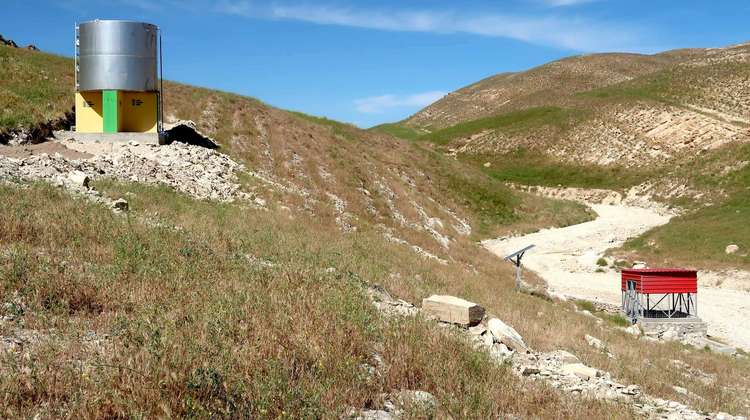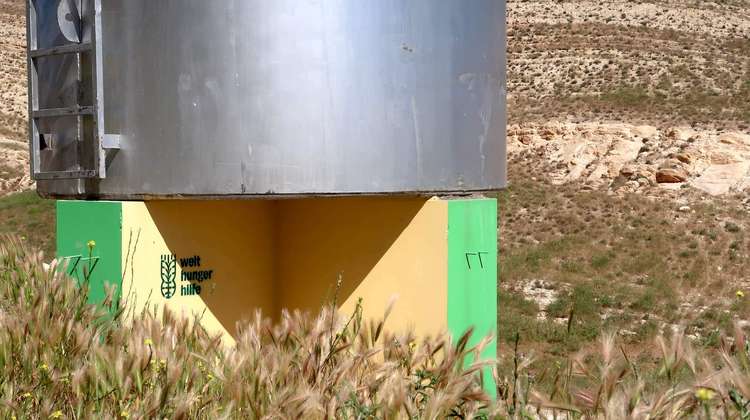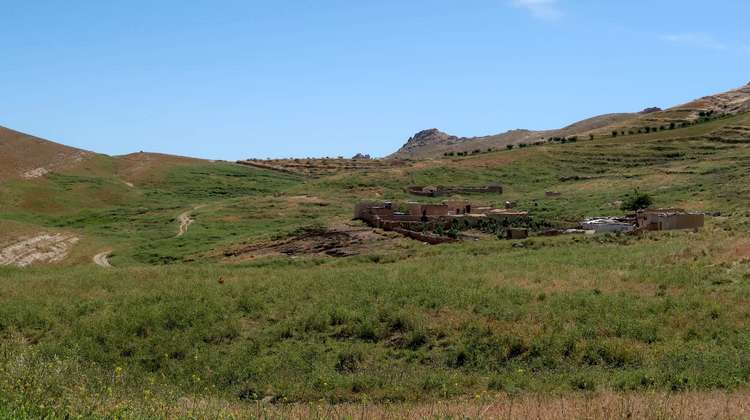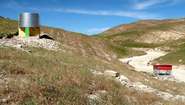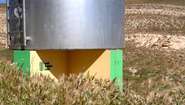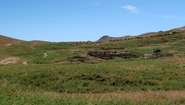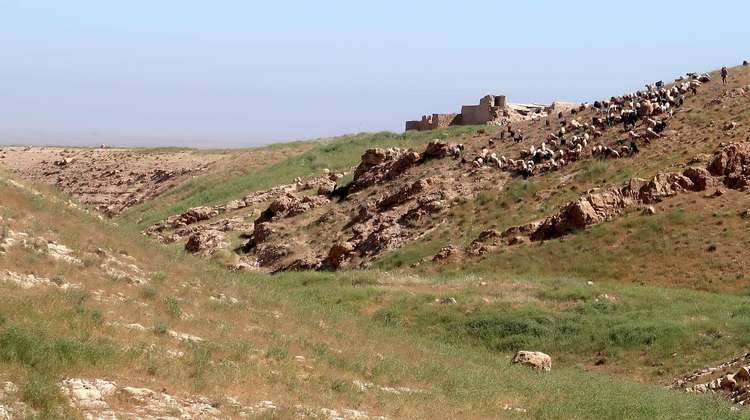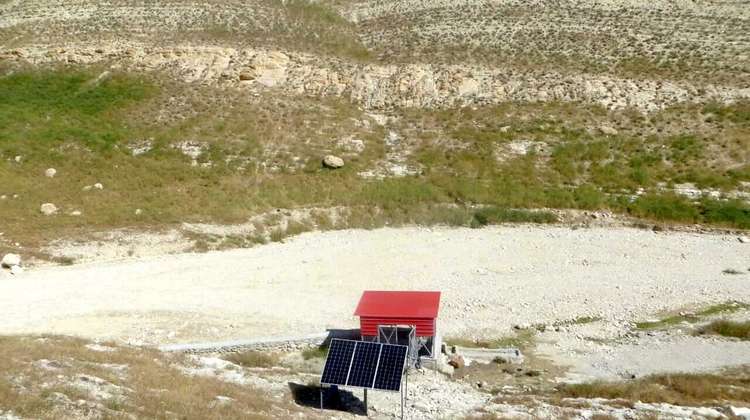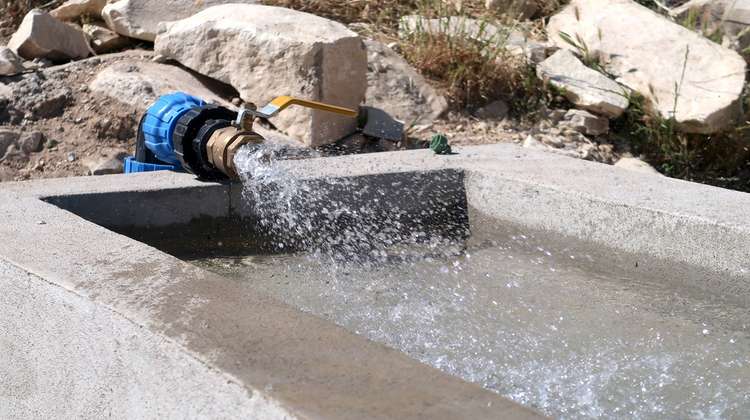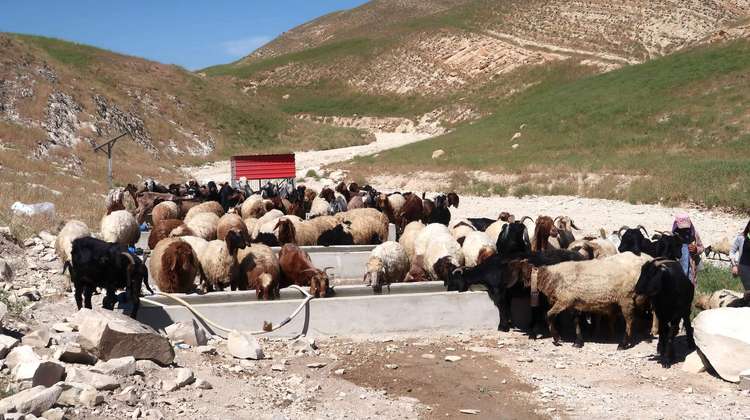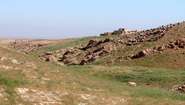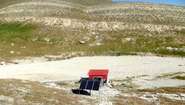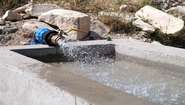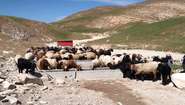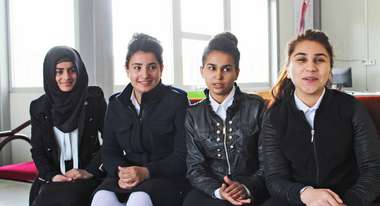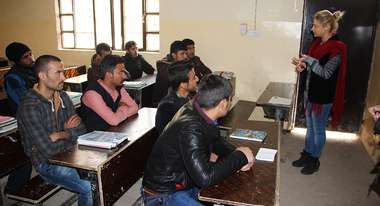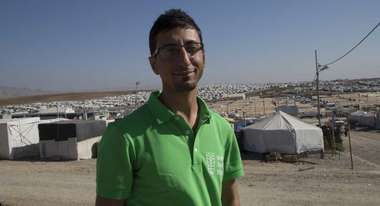Green energy for humans and animals in Northern Iraq
Solar power is being used to provide water to shepherd families and their livestock who have returned to the Sinjar mountains.
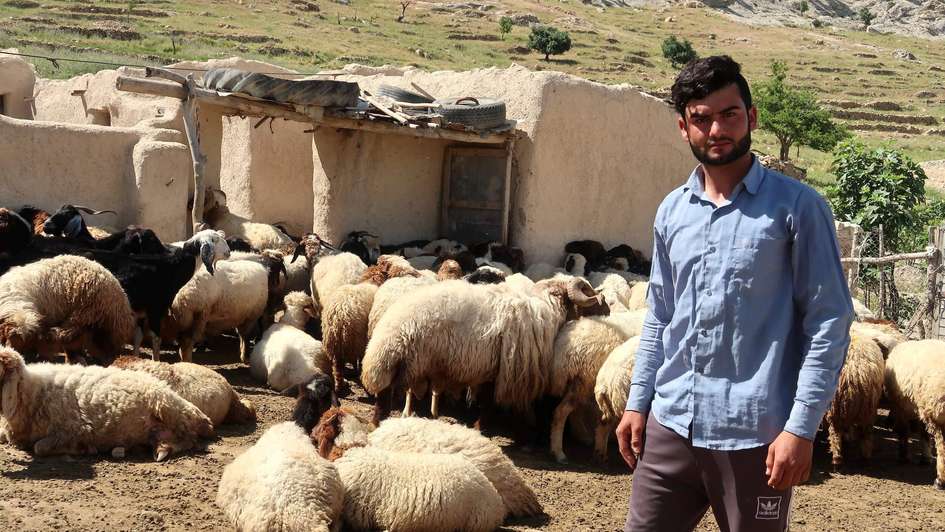
It is the middle of May and the morning hours are starting to get hot again. Soon the temperature will rise up to more than 40 degrees which makes outdoor work and life unbearable under the summer heat. We were heading to a remote place inside the Sinjar mountains where Welthungerhilfe recently rehabilitated a borehole and installed water distribution points for animals and families – the only one nearby.
The Sinjar mountains lie in the Ninewa governorate in Northern Iraq. The area around the mountains have been mainly inhabited and regarded as sacred by the Yazidis. They have historically used the mountains as a place of refuge and escape during periods of conflict. Also, in 2014 when fighters of the so-called Islamic State (IS) raided the area. Ten thousand Yazidis fled to the mountains or sought refuge in other parts of Iraq or Syria. After the defeat of the IS and the liberation of occupied villages, cities and whole areas, people in Northern Iraq are able to return to their homes and start their lives anew after they were forced to spend years in refugee camps.
Barriers to new beginnings
But still to this day they face a lot of challenges: poverty rates in Northern Iraq have doubled after years of continual conflict and economic stagnation. Due to the fighting many families lost their livelihood. Their houses were bombed or burned down, their shops were looted, and their livestock was stolen or killed. Irrigation systems, boreholes and water pipes were destroyed which is a great problem in particular for farmers and shepherds who live in remote area as they depend on a functioning water system.
Therefore Welthungerhilfe together with its partner Mercy Hands and with financial support from the German Federal Ministry for Economic Cooperation and Development (BMZ), is developing solutions to the water and energy problems to support returnees and host communities.
Water provides for life in the mountains
When we arrived at the project site, we could spot a herd of sheep and goats on the top of the mountain and a young man guiding them to newly installed animal watering point. The young man’s name is Hamid Barakat*. He is a 19-year-old shepherd who lives with his family in the mountains. In 2014 when it became too dangerous for them, they fled to Duhok where they lived for one year. After the liberation from IS they as well as other families could finally return to their homes.
“We were five families living in this area, now there are only three left. All of us are shepherds but when the IS fighters came, we had to flee and leave our animals behind. I had 450 sheep and goats – my entire possessions. When we came back less than half of my livestock was left. The rest of them were killed or sold by the fighters. But they did not only take my sheep and goats, they also destroyed and looted our houses”, said Hamid while maintaining his watchful gaze on his animals.
He like the other families depend on the borehole. Every day, local shepherds and families come here to water their animals and collect water for their daily needs.
“Before there was no pump and we had to spend a lot of time and effort to water all the animals. Now I have 250 sheep and goats, other shepherds have even more. Especially in the summer it was hard work. There is no tree, no shadow to protect us from the sun. Now it is really relaxing. I only have to open the water tap and there is running water for my dear animals”, Hamid said with relief.
Harnessing the power of the sun
Since there is no electricity, the shepherd families used a small diesel generator to pump the water out of the borehole. The fuel was costly as were repair costs when the generator broke down, not to mention the air and noise pollution for the three families relying on the generator. To support and make life easier for the people living in the Sinjar mountains, Welthungerhuilfe not only started to rehabilitate the borehole but also installed a new pump along with water distribution points and built a water tank with a capacity of 40,000 litres. The pump is powered by solar energy – both innovative and environmently-friendly.
“Now I bring my sheep and goats every day to this place, but also other sheep owners come here. I wished this pump and the watering places would have existed before. This generous system makes our life so much easier. It is so important for us that our animals are healthy. With them we earn our living. We make and sell products such as cheese and milk. But sometimes we also have to sell two or more sheep if we need more money to cover the cost of medicine or other expensive expenses”, he explained.
Iraq is a country wrecked by a series of conflicts that have devastated its electric infrastructure which now depends on electricity generators operated with fossil fuel. Generators can be seen but also smelled on many street corners. Burning fuel creates air pollutants and on some days the air pollution is so high that breathing becomes unpleasant. Furthermore, the lack of electricity tends to affect the most vulnerable groups of Iraq’s society such as the families living in the Sinjar mountains.
An alternative solution to those generators is solar power. Welthungerhilfe demonstrates with the usage of solar panels an example of a successful best practice in terms of green and efficient energy. Many families and shepherds in Sinjar mountains as well as thousands of sheep and goats will benefit from the rehabilitation of the borehole and the installation of a new pump, the water tank and water distribution point as well as four new animal watering places.
*The young man's name has been changed for this article.





